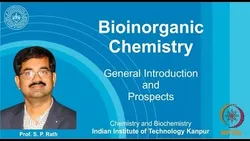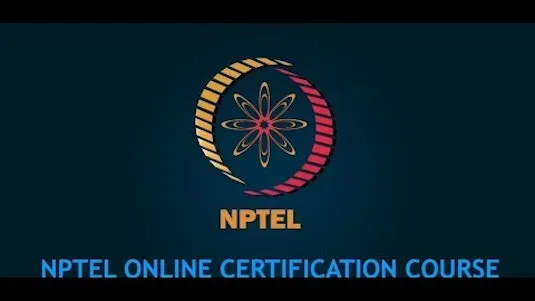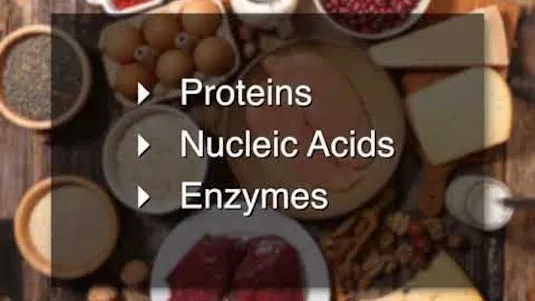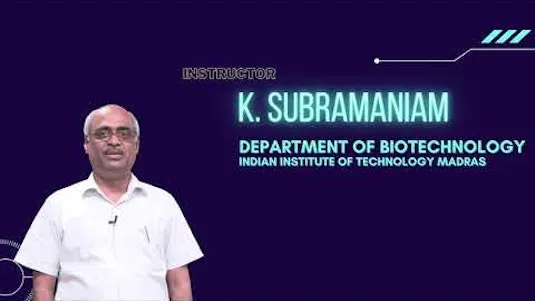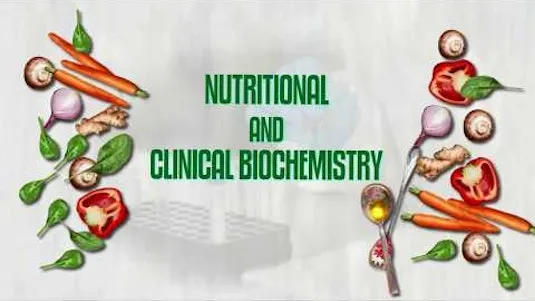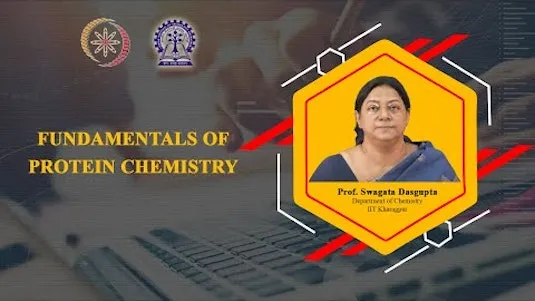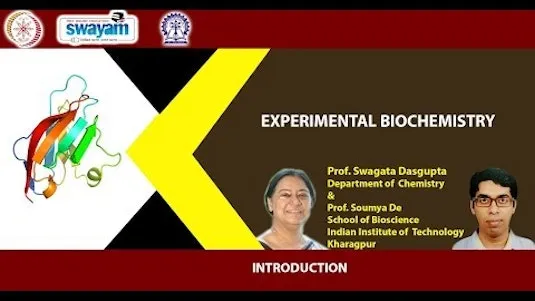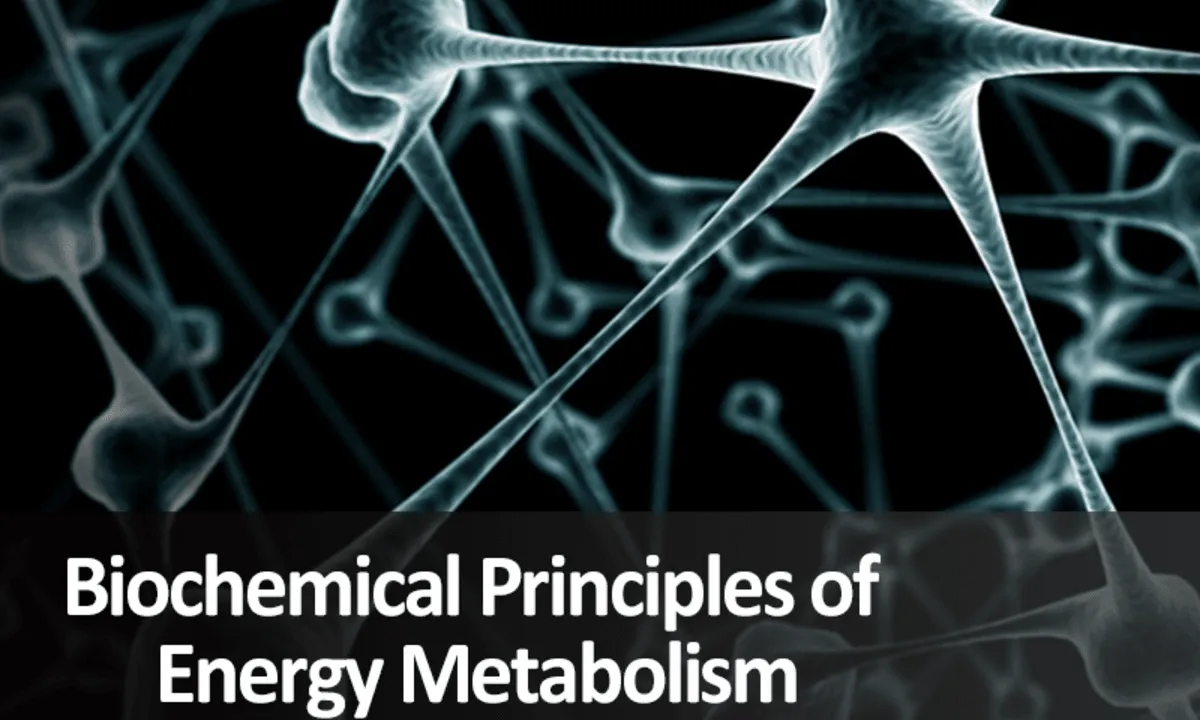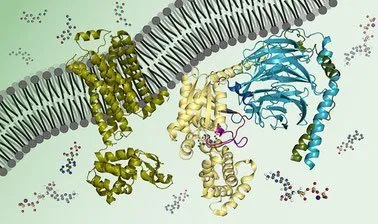Free Online Biochemistry Courses and Certifications 2024
Biochemistry is the study of the chemical processes within and related to living organisms. It is a multidisciplinary field that combines biology, chemistry, and physics. It is suitable for those interested in the medical, pharmaceutical, and biotechnology fields. People who study biochemistry can pursue a variety of careers, such as medical doctor, pharmacist, or biochemist.
Popular Courses
This course provides an introduction to the principles of biochemistry, including the structure of macromolecules, enzyme kinetics, metabolic pathways, and the manipulation of enzymes and pathways. Learners will explore simple cells to more complex tissues, and develop problem solving and analytical skills applicable to the life sciences. This course is ideal for those looking to gain a better understanding of biochemistry and its principles.
Learn MoreThis course provides an overview of Bioinorganic Chemistry, a rapidly expanding field that explores the use of metal ions in nature. It covers topics such as the role of metal ions in biological processes, the synthesis of inorganic molecules, and their applications in medicine. Students will gain insights into the interdisciplinary nature of this field and its potential applications.
Learn MoreThis course provides an essential overview of the chemistry and biology of two important classes of biomolecules: nucleic acids (DNA/RNA) and proteins. Students will learn how structural features are translated into biological functions, how chemical reactions are used to replicate DNA and synthesize proteins, and how organic chemistry tools and enzymes are used to determine sequences and modify biomolecules. The course also covers modern techniques, such as high-throughput detection, single nucleotide polymorphisms, and disease diagnosis. It is suitable for chemistry, biochemistry, and biotechnology students with basic knowledge in organic chemistry.
Learn MoreThis course provides an introduction to Biochemistry & Molecular Biology, exploring the chemical processes within and related to living organisms. It covers topics such as carbohydrates, lipids & vitamins, proteins, nucleic acids & enzymes, cell structure, DNA & RNA, and genetic coding. Learners will gain knowledge and skills in DNA isolation in bacteria, plants and animals, as well as genetic engineering. Through online learning, this course will equip learners with the necessary skills to understand and apply the concepts of biochemistry and molecular biology.
Learn MoreThis course provides an introduction to the fundamentals of biochemistry, exploring how the few elements of life are used to form complex molecules and how these processes are interconnected and regulated. Students will learn about topics such as structural biology, biotechnology, genomics and proteomics. This course is intended for life sciences undergraduate students with introductory-level organic chemistry and biology. No industry support is required.
Learn MoreThis Nutritional and Clinical Biochemistry course provides an in-depth understanding of the chemical properties of nutrients and other dietary constituents. It covers topics such as their functions at cellular and molecular levels, as well as how clinical investigations of laboratory tests in humans (such as body fluids) are used for diagnosis of diseases and its therapeutic purposes. Students will gain a comprehensive knowledge of the subject and be able to apply it to their own practice.
Learn MoreThis course provides an in-depth exploration of protein chemistry, from the basics of amino acids and peptide bonds to the more advanced topics of protein folding, denaturation, metalloproteins, motor proteins, membrane proteins, enzyme mechanisms, and protein-ligand and protein-protein interactions. It is intended for undergraduate and graduate students with a background in biochemistry. Through online learning and skill training, students will gain a comprehensive understanding of protein chemistry and its applications.
Learn MoreThis Biochemistry course from IITKGP is an introductory course that covers the basics of biological macromolecules such as proteins, carbohydrates, lipids, and nucleic acids. It also covers enzyme chemistry, membrane transport, and bioenergetic principles. After completion, students will have a better understanding of the chemical properties and 3D structure of these macromolecules and their biological functions. This course is suitable for BSc/MSc/MS/PhD students with basic knowledge in Chemistry and Biology.
Learn MoreThis Experimental Biochemistry course is designed to provide undergraduate students in biochemistry, molecular biology, chemistry and other related biological sciences with the skills and knowledge to work with biomolecules in the laboratory. Through weekly topics, demonstrations, and assignments, students will learn the basics of biochemistry laboratory techniques and higher level concepts to prepare them for future research and development projects. This course is suitable for students with a course in biochemistry in their curriculum and is applicable to biotechnology and pharmaceutical companies.
Learn MoreThis Biochemistry course provides an introduction to the fundamentals of biochemistry. It covers topics such as protein structure, enzymes, photosynthesis, cell communication, illicit drugs, and pharmaceutical drugs. Through online learning, students will gain skills in biochemistry and learn how to apply them to real-world scenarios. The course is designed to help students understand the nature of disease and how to use inhibitors to treat it.
Learn MoreThis course covers the biochemical principles of energy metabolism, exploring how carbohydrates like glucose are used to extract energy. It examines the various biochemical ways of energy transformation and regulatory mechanisms of thousands of chemical reactions, and how these processes are essential for sustaining life.
Learn MoreThis course provides an overview of plant biochemistry and biotechnology, including topics such as photosynthesis, respiration, nitrogen cycle, growth hormones, secondary metabolism, plant tissue culture, genetic engineering, gene transfer methods, transgenic plants, and molecular markers. It aims to equip learners with the fundamental knowledge of plant biochemistry and biotechnology to be used in crop improvement.
Learn MoreThis course provides an introduction to biochemistry, covering topics such as biomolecules, methods, and mechanisms. It is ideal for those looking to prepare for medical school, study a STEM field, become a research scientist, or transition to a career in biotechnology. Students will gain an understanding of the chemical reactions that govern life.
Learn MoreBioelectrochemistry is an interdisciplinary field combining electrochemistry and biochemistry to create biosensors, biofuel cells, and diagnostics. This course covers the basic principles of electrochemistry and their applications in biology, with a focus on industry support from the biosensor, bioelectrochemical process, and MEMS fabrication industries. Prerequisites include 10+2 in science.
Learn MoreThis course covers the structure of proteins, from primary to quaternary, as well as macromolecules, photosynthesis, and lipids. It examines the light dependent reactions and the Calvin cycle, as well as fatty acids, triglycerides, phospholipids, terpenes, waxes, and eicosanoids. Students will gain a comprehensive understanding of these topics.
Learn MoreMetabolism is a complex biochemical process that occurs in all living organisms. It involves the breakdown of molecules to produce energy and the synthesis of new molecules. Locations of metabolism biochemistry include the cell membrane, mitochondria, and cytoplasm. Oxidative phosphorylation is a key part of metabolism, as well as metabolic pathways. Additionally, there are differences between A, B and Z DNA. All of these processes are essential for life.
Learn More Biochemistry Courses
Career Prospects
| Average Salary | Position Overview
|
| Senior Research Associate | $56,097 per year | As a senior research associate, your responsibilities include preparing proposals for funding agencies, overseeing the operation of research equipment, and supervising graduate students and other lab/field personnel involved in research. Your duties may also involve designing, planning, conducting, and coordinating experiments to support various research projects. |
| Postdoctoral Fellow | $92,881 per year | Postdoctoral fellows and postdoctoral associates are part of the research staff and their primary objective is to further their education and gain more experience. Even though they have a doctoral degree, they are not regarded as independent researchers and are not authorized to serve as principal investigators. |
| Research Associate | $76,696 per year | A research associate is employed in the research department of a financial services company, such as an investment bank or asset management firm. Their role involves collecting, organizing, and analyzing data to provide insights that support decision-making for the firm's sales and trading operations. |
| Research Scientist | $116,296 per year | Research scientists are responsible for designing, conducting, and analyzing information from controlled laboratory-based investigations, experiments, and trials. They typically work for government laboratories, environmental organizations, specialized research organizations, or universities. |
Educational Paths
1. Bachelor's degree in biochemistry or related fields such as chemistry, biology, or molecular biology.
2. Master's degree in biochemistry or a related field, which typically takes two years to complete and may involve research.
3. PhD in biochemistry, which can take up to five or six years and involves conducting original research and writing a dissertation.
4. Postdoctoral research, which provides additional training and experience in a specialized area of biochemistry.
5. Certification through professional organizations, such as the American Society for Biochemistry and Molecular Biology (ASBMB), which offers certification for professionals with a bachelor's or master's degree in biochemistry or related fields.
Frequently Asked Questions and Answers
Q1: What topics are covered in an online biochemistry course?
An online biochemistry course covers a wide range of topics related to the chemistry of biological systems. You'll learn about thermodynamics, equilibrium theory, states of matter, solutions, and chemical kinetics, and how they all relate to biological functions. After completing the course, you'll have a better understanding of the structure and purpose of a variety of biological processes.
Q2: Are online biochemistry courses accredited?
If you're looking to gain a deeper understanding of biochemistry, an online course from a reputable institution can provide you with the accredited education you need. Whether you're looking to refresh your skills before medical school, prepare for the MCAT, or simply advance your undergraduate education, you can find an accredited biochemistry course online that meets your needs. Contact the platform today to learn more about the accredited online biochemistry courses.
Q3: Is biochemistry a hard career?
Biochemistry or biophysics majors rank 8th among the most challenging majors, requiring an average of 18 and a half hours per week dedicated to class preparation.
Q4: Is biochemistry a good pre med major?
In the United States, 43% of students majoring in Biochemistry gain admission to medical school, followed by general biology at 35%. Biochemistry incorporates a significant amount of mathematics and is regarded as one of the most demanding majors in the life sciences.
Q5: What Biochemistry courses can I find on AZ Class?
On this page, we have collected free or certified 76 Biochemistry online courses from various platforms. The list currently only displays up to 50 items. If you have other needs, please contact us.
Q6: Can I learn Biochemistry for free?
Yes, If you don’t know Biochemistry, we recommend that you try free online courses, some of which offer certification (please refer to the latest list on the webpage as the standard). Wish you a good online learning experience!

